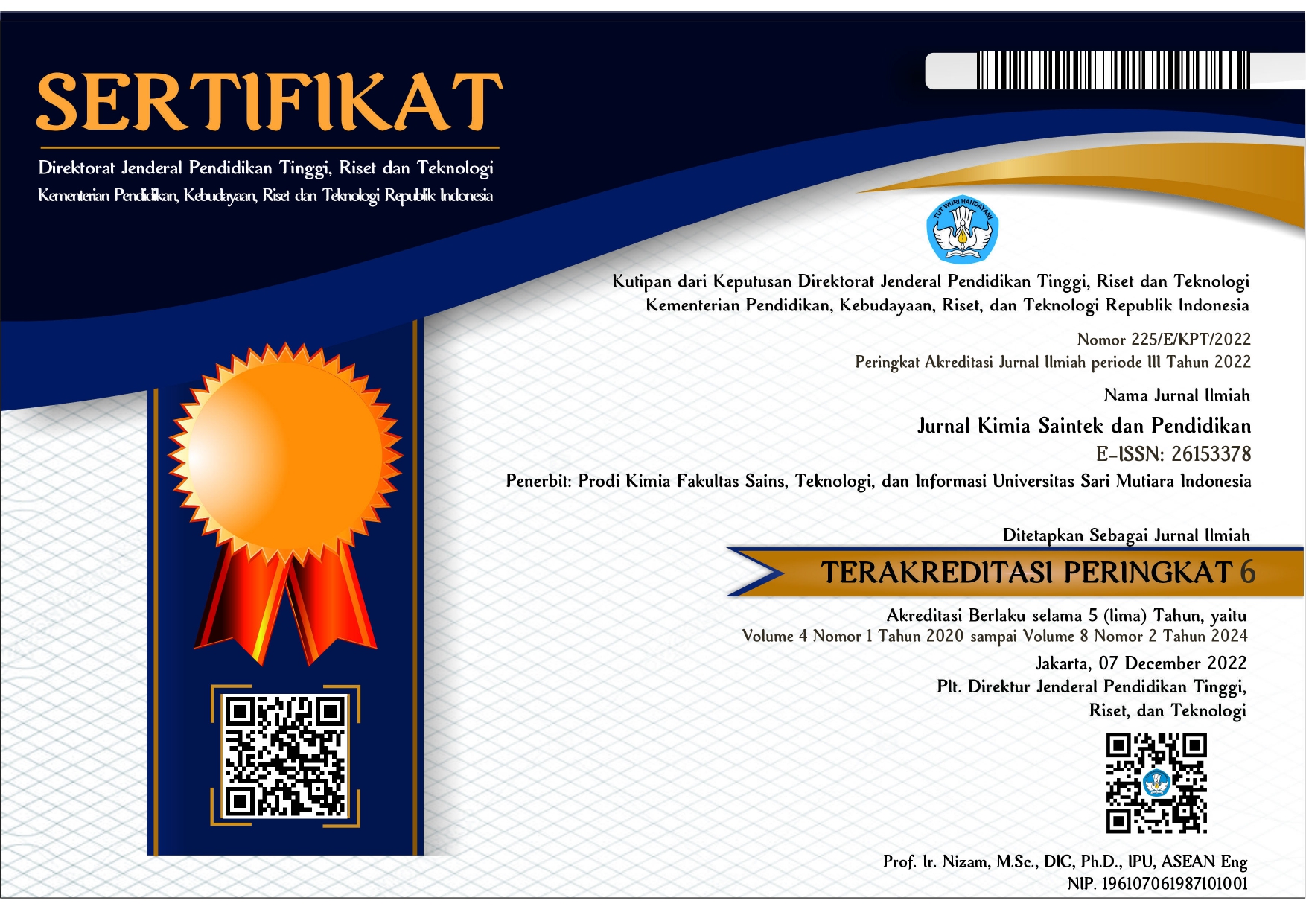EFEKTIFITAS BAKTERI UNTUK DEGRADASI SAMPAH PLASTIK YANG DIISOLASI DARI TEMPAT PEMBUANGAN AKHIR (TPA) AIR DINGIN PADANG
Keywords:
Bacteria, Isolation, Plastic, BiodegradationAbstract
The problem of waste in Indonesia, which has not been handled properly, is plastic waste, where the high total consumption of plastic causes the amount of plastic waste produced to continue to increase every year. This study aims to determine the bacteria that can degrade plastic isolated from the Padang Cold Water Final Disposal Site (TPA). The method used in this study is that the sample was taken from the Padang Air Cold TPA at several points and then diluted. The bacteria were isolated in a petri dish that already contained NA (nutrient agar) media with the streak method, then incubated for 48 hours, the bacteria that have been grown are purified to get more specific bacteria, after being purified, degradation tests are carried out by inserting sterilized and weighed plastic pieces into a petri dish containing bacteria and NA media, the plastic samples used are LDPE (Low-Density Polyethylene) and Biodegradable. In the study 2 types of bacteria were purified , the weight reduction results in LDPE plastic samples were 10.61% on bacteria 1 and Biodegradable by 10.3% on bacteria 1. The SEM (Scanning Electron Microscope) test showed that the surface of the test sample was wavy, and there were wrinkles. In this study, it can be concluded that the isolated bacteria 1 can degrade plastic.









 This work is licensed under a
This work is licensed under a 

.png)

